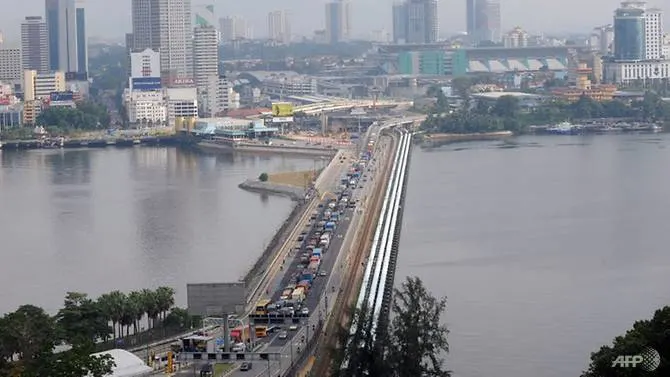Singapore and Malaysia can still work closely despite recent differences, says DPM Heng
30 July, 2019

Singapore and Malaysia can work "more closely" together on many areas despite recent differences over issues such as water and maritime boundaries, said Singapore's Deputy Prime Minister Heng Swee Keat.
In an interview with visiting Malaysian journalists on Saturday (Jul 27) Mr Heng said that being the closest neighbours, there will always be differences that arise from time to time between the two countries.
“What is important is for us to resolve this as objectively and as rationally as possible," Mr Heng said.
"It is important for us to see the broader strategic picture, which is, by cooperating with one another closely, we can actually achieve more together. We can do more to improve the lives of our people both in Malaysia and Singapore, and contribute to the broader regional peace and stability and the broader development in the region."
He highlighted three areas the Singapore and Malaysia can work on – ensuring regional peace and stability, developing the economy and fostering stronger people-to-people ties.
For the first, Mr Heng said uncertainties have increased with the global geopolitical situation and it is important for both countries, as well as for the other Association of Southeast Asian Nations (ASEAN) member states to work closely together to ensure peace and stability in the region so as to engage major powers.
“ASEAN member states do not want to take sides in any major disputes between the big powers,” he said. “But we are open to working with everyone who wants to achieve win-win outcomes with ASEAN and ASEAN member states.”
ASEAN E-COMMERCE NETWORK?
Economic development was the second area, Mr Heng, who is also Singapore’s Finance Minister, highlighted. He said every country hopes to improve its people’s standard of living, grow its economy and create jobs.
“We must build on what we already have in the ASEAN economic community, and work on how we can complement one another even better in the future,” he said.
Mr Heng cited the example of digital banking and e-commerce, pointing out that many in the region still do not have a bank account because banks have found it too expensive to serve people in the outlying areas.
If the ASEAN states can work together to facilitate a payment system for regional trade, this could improve people’s lives, the minister said, adding that financial inclusion was one of the topics discussed by the finance ministers in Chiang Rai, Thailand, this year.
“One of my colleagues from an ASEAN member state was telling me that in the past, if you’re a very good village craftsman, and you make an excellent piece of artwork, (it) is limited to the local market,” Mr Heng said.
“But with e-commerce, with e-payments, if we have a proper system of doing this across the whole of ASEAN, the market is 650 (million) to 660 million people.”
As for stronger people-to-people ties, Mr Heng said the onus is for both countries to promote better relationships, whether it is among business groups, academics or among their citizens.
One specific project he wants to support is regional tourism given the rise of low-cost carriers, he added.
“Every ASEAN member state has something unique, whether in terms of its history, its culture, its heritage, or its range of activities and certainly food. It is therefore very useful for us to encourage people to travel, to visit one another, to learn more about each other's history, culture and heritage, and to have a taste of what life is like today,” Mr Heng said.
“In that way, we can promote better people-to-people understanding among ASEAN, encourage our students to come together, to work together, to learn together … (and) promote a better understanding among all our people in ASEAN,” he added.
DIFFERENCES BETWEEN NEIGHBOURS
When asked to describe bilateral ties today, Mr Heng said there are areas of differences between both countries that they are looking to resolve but there is also a willingness to look at areas of collaboration.
“As long as we work on the basis of a win-win outcome and work on the basis that we abide by international rules and norms and regulations, I think we can find practical ways to resolve any differences,” DPM Heng said.
He said he agreed with comments made by Malaysia’s Prime Minister Mahathir Mohamad at the Nikkei conference earlier this year on the dispute over Pedra Branca, that “it is important for us to resolve any differences through proper process, by abiding international norms and regulations and rules”.
Malaysia had accepted the ruling of the International Court of Justice over Pedra Branca to award the rocky outpost to Singapore, citing it as an example of how ASEAN member states have worked together based on mutual respect.
“It is important for us to see the broader strategic picture, which is, by cooperating with one another closely, we can actually achieve more together, we can do more to improve the lives of our people both in Malaysia and Singapore, and contribute to the broader regional peace and stability and the broader development in the region.”
He added that Singapore is happy Malaysia’s Dr Mahathir, together with leaders from Indonesia and Brunei, will be attending its upcoming bicentennial National Day Parade.
Source:
